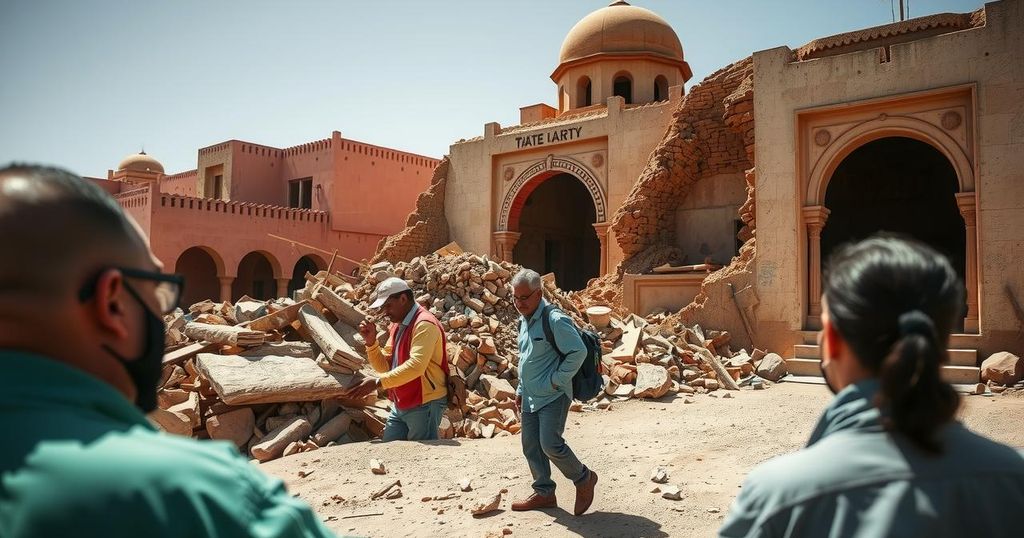Four Moroccan activists, including Said Ait Mahdi, are on trial for criticizing the government’s inadequate earthquake recovery efforts. Many victims remain in makeshift housing a year after the quake, despite a pledged $12 billion reconstruction plan that has not effectively reached those in need. Protests have intensified, demanding accountability amid allegations of corruption and bureaucratic delays.
In Morocco, four activists, including notable Amazigh figure Said Ait Mahdi, are currently facing trial due to their criticism of the government’s handling of earthquake recovery efforts following a devastating quake in September 2023. Ait Mahdi has been detained since December 23 and is charged with defamation, insult, and spreading false allegations. The remaining three activists, part of the El-Haouz Earthquake Victims’ Coordination, are accused of insulting public officials and are awaiting their court hearings. This trial has raised concerns regarding the government’s intolerance towards dissent, especially in the context of an inadequate response to natural disasters.
The aftermath of the earthquake has left at least 500,000 individuals displaced in the Atlas Mountains, with many families enduring harsh winter conditions in makeshift tents. Reports and videos circulating on social media have highlighted the dire situation, depicting children shivering in the cold as they await assistance that has been promised but remains largely unfulfilled. Although the Moroccan government committed to a $12 billion reconstruction initiative that includes financial support for victims, many have found themselves receiving minimal aid or facing bureaucratic barriers that hinder access to resources.
Protests have erupted, with families demanding answers from the government regarding the slow pace of recovery. During a Parliament session led by Prime Minister Aziz Akhannouch, demonstrators expressed their frustration, yet their concerns went unaddressed by officials. Opposition parties have called for investigations into the effectiveness and transparency of the government’s response. Allegations of corruption have emerged, suggesting that local authorities may be mismanaging reconstruction funds. In December, Morocco’s Interior Minister Abdelouafi Laftit announced an investigation that led to the discovery of at least one official involved in bribery related to the allocation of funds.
Following the earthquake in September 2023, which displaced thousands in Morocco’s Atlas Mountains, the government committed to a comprehensive reconstruction plan. However, more than a year later, significant hurdles remain for affected families, many of whom continue to live in temporary shelters. The disconnect between governmental promises and the realities faced by citizens has led to vocal criticism from activists and the public alike, demanding accountability and timely assistance as cold weather exacerbates their plight.
The ongoing trial of Moroccan activists highlights the government’s reaction to any criticism regarding its ineffective earthquake recovery efforts. With many citizens still stranded in precarious living conditions, the demand for transparency and accountability becomes increasingly urgent. As corruption allegations arise, the government must act swiftly to restore faith in its commitment to its people and provide the necessary aid to those still suffering.
Original Source: www.newarab.com






